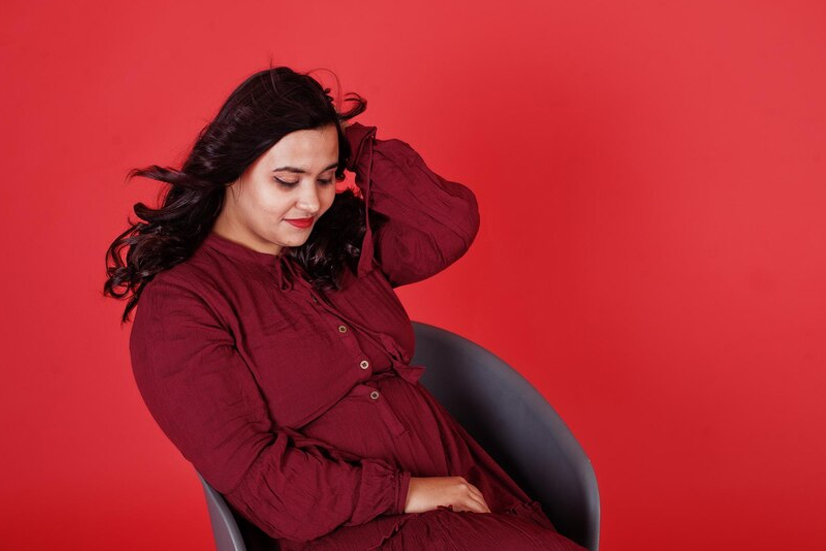-1732789481527.webp)
Menstrual cycles are different for everyone, and it’s common to wonder if a short duration of period is normal. In most of the cases, periods last between 3-7 days, but for some women, a two-day period can be completely normal. Things like age, hormones, stress, or health issues can affect how long your period lasts. Understanding what’s normal for your body can help you know if a shorter period is just part of your cycle or if it’s something you should check with a doctor.
Table of Content:-
Read on to know more about the two-day period that might happen and when to seek advice from a professional.
What Are The Possible Reasons For A 2-day Period?
-1732789888658.jpg) Periods are a natural part of life for most women with a uterus, but they can vary greatly from person to person. While many women are used to periods lasting between 3 to 7 days, some may find their period lasts just two days. The menstrual cycle itself typically ranges from 21 to 35 days, though this can also differ.
Periods are a natural part of life for most women with a uterus, but they can vary greatly from person to person. While many women are used to periods lasting between 3 to 7 days, some may find their period lasts just two days. The menstrual cycle itself typically ranges from 21 to 35 days, though this can also differ.
A shorter period, such as one lasting just two days, might simply be part of the body’s natural cycle. However, it could also signal an underlying issue depending on the circumstances. Below are a few possible reasons for the same.
Hormonal Changes
Hormonal fluctuations in women are a key factor in regulating the menstrual cycle. Oestrogen and progesterone, the primary hormones involved, can vary significantly during different life stages such as puberty, menstruation, pregnancy, and menopause.
Birth Control
Hormonal birth control methods like pills, implants, and Intrauterine Devices (IUDs) are designed to prevent ovulation and regulate menstrual cycles. These methods can lead to lighter or shorter periods for many users. For example, hormonal IUDs often result in significantly reduced menstrual flow or even amenorrhea (absence of menstruation in women of reproductive age) after prolonged use. It thins the uterine lining and thickens cervical mucus, often resulting in lighter periods or the cessation of menstruation over time.
Polycystic Ovary Syndrome (PCOS)
PCOS is a common hormonal disorder characterised by irregular menstruation. It includes elevated androgen levels and polycystic ovaries. Women with PCOS often experience lighter or shorter periods or menstrual cycles due to hormonal imbalances that disrupt normal ovulation patterns. The condition can also lead to other symptoms such as weight gain, acne, and excessive hair growth.
Lifestyle Factors And Stress
High levels of stress, significant weight changes, and intense physical activity can disrupt hormonal balance, leading to irregular or shorter periods. Stress affects the hypothalamus, which regulates hormones that control menstruation. It potentially results in lighter bleeding or missed periods altogether.
Pregnancy
A short period may sometimes be mistaken for a regular menstrual cycle but could be implantation bleeding. This occurs when a fertilised egg attaches itself to the uterine lining, typically around 6-12 days post-ovulation. Implantation bleeding is usually very light and lasts only a few hours to a couple of days. It is often accompanied by mild cramping but is generally much lighter than a regular period.
Real-Life Experience Of A Woman Having A 2-Day Period?
For Amita (name changed due to privacy reasons), the short period came as a result of irregular lifestyle and stress. She went on to become a chain smoker and would not sleep for days. “I was terrified with the things I was taking in my body. I never ate food on time and was on the verge of being a full-blown alcoholic. However, it was my dog, Casper, who helped me to get out of the mess I created around myself,” she added.
How To Manage Irregular Periods?

Managing irregular periods or menstrual cycles involves a combination of lifestyle changes. Dietary adjustments and medical interventions are also a few changes one needs to make in their lifestyle.
Maintain a balanced diet rich in fruits, vegetables, whole grains, and healthy fats.
Stay hydrated and consider key nutrients like magnesium and omega-3 fatty acids.
Aim for at least 150 minutes of moderate aerobic activity per week to support hormonal balance.
Maintain a healthy body weight, as both weight loss and gain can disrupt menstrual cycles for women.
Practise stress management techniques such as yoga, meditation, and deep breathing exercises to help in better circulation of body movements.
Prioritise 7-9 hours of quality sleep each night by establishing a regular sleep schedule.
Go for natural remedies and consider herbal supplements like ginger and cinnamon, though scientific evidence may be limited.
ALSO READ: Study Finds Irregular, Long Menstrual Cycles May Be Linked To Future CVD Events
When To Seek A Doctor After Irregular Menstrual Cycles?

A two-day period is not always a cause for concern, but there are times when women should talk to a healthcare provider. When periods suddenly become much shorter or irregular, consulting a gynaecologist is always a recommended option. However, keeping track of your menstrual cycle can help you notice any unusual changes.
Also watch this video
How we keep this article up to date:
We work with experts and keep a close eye on the latest in health and wellness. Whenever there is a new research or helpful information, we update our articles with accurate and useful advice.
Current Version